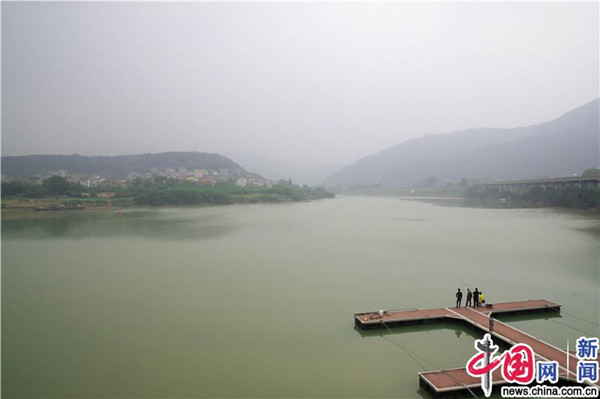Restoring Shaoxing through water conservation
- By Wu Jin and Li Weibin
 0 Comment(s)
0 Comment(s) Print
Print E-mail China.org.cn, October 16, 2019
E-mail China.org.cn, October 16, 2019

According to a poem written by China's most celebrated poet Li Bai, the River Shanxi in Shaoxing, Zhejiang province, was crowned the top waterway among the water towns in southeastern China.
The poem went on to say that it had the most stunning and unforgettable views and was a supremely beautiful land with affluent resources.
This particular poem, which was written more than 1,200 years ago resonates with the country's current guiding principles that aim to restore the nation's azure skies and clean waters. Shaoxing's ecological restoration is a case in point.
The city's programs have followed a three-year action plan carried out from May, 2019 by the Zhejiang government. It seeks to restore the idyllic views of riverside cities, towns and villages by raising the water quality across the region.
"The environment has been greatly improved since the launch of the riverside sightseeing projects," said Chen Yuejun, a local resident, who lives near the River Cao'e, which converges with the River Shanxi at Shangyu in northeastern Shaoxing.
"Since the renovation began, the river dike has attracted an increasing number of local residents who come to enjoy a relaxing evening," Chen said.
"The project is designed with the greatest efforts to preserve the original water fronts, shoals and natural reserves," said Hu Yaocan, a local government official from Shangyu district.
Home to Xie Lingyun (385-433), the creator of China's landscape poetry, Shangyu plans to become a tourist destination with clean waters, beautiful and natural conservation as well as an unique cultural heritage. An example of that would be Xie's old residence and the stone lounge he used for fishing.
The area underwent a disastrous flood in 1988, when water levels rose to between two and three meters high in severely inundated areas. Half of the rural houses flanking the River Huangze, a tributary to River Cao'e, were destroyed. As such, the local government in Xinchang county, eastern Shaoxing, established a reservoir.
The water conservation project has transformed the bank from one that was a frequent victim of deluges, to a natural and recreational resort where local residents can go for walks, especially, in the evenings. At the same time, it serves as a critical part both for the flood prevention project of the River Cao'e and the water diversion program in eastern Zhejiang.
Huang Yan, the head of the county's water conservancy bureau, said, "the Huangze Reservoir project has increased flood prevention capacity along the riverside. Its surroundings have been improved and its pristine landscape has been restored."
In Shaoxing's urban area, Didang Lake, a man-made reservoir, is able to reduce the largest flood stage among those occurring in 20 years by 0.24 meters. With its help, deluges can be discharged into the eastern part of Shaoxing where concerns over devastating floods can be greatly alleviated.
As early as 10 years ago, Shaoxing kicked off the "Clean Water" campaign which later developed into a renovation project covering the area around Lake Jianhu, a renowned scenic spot in the southwestern part of the city. The project, which mainly focuses on the banks of the watercourse, has created a major facelift for riverside bungalows, bridges and greeneries and has improved the water quality in the lake.
According to Qian Guodi, the village-level river chief of the lake, the renovation has transformed the region into a mesmerizing tourist destination, rich in historical legacy and natural scenery.
In 2016, China rolled out the River Chief System, which held some governmental officials accountable for the water quality of the rivers or lakes under their jurisdiction.






Go to Forum >>0 Comment(s)